The Emergence of AI
The Emergence of AI-Based Technologies
Artificial Intelligence (AI) has transitioned from science fiction to everyday reality. Today, AI is embedded in various facets of life and business, driving innovation, efficiency, and enhanced decision-making. This blog delves into the rise of AI-based technologies, exploring the reasons behind its rapid adoption, the substantial benefits it brings to businesses, the inherent risks and rewards, and its pivotal role in bolstering cybersecurity. We will also explore specific examples, such as Conceal Browse, an AI-driven browser security solution, highlighting its effectiveness in fighting zero-day threats.
The Drivers Behind AI Adoption
Several key factors are fueling the widespread adoption of AI technologies. These include rapid technological advancements, the explosion of data availability, the quest for competitive advantage, and the potential for significant cost savings. Understanding these drivers provides insight into why AI is becoming an integral part of modern business strategies.
Technological Advancements
The rapid advancement in computing power, coupled with the development of sophisticated algorithms, has made AI more accessible and practical. Moore's Law, which predicts the doubling of transistors on microchips approximately every two years, has played a critical role in this evolution. The increase in computing power allows AI algorithms to process vast amounts of data swiftly and accurately, enabling more complex and capable AI systems.
Data Availability
The explosion of data in recent years is another key driver behind AI adoption. Every day, an estimated 2.5 quintillion bytes of data are generated, encompassing everything from social media posts to transactional records and sensor data from IoT devices. This abundance of data provides the raw material that AI systems need to learn, adapt, and improve. The more data an AI system processes, the more accurate and reliable its predictions and analyses become.
Competitive Advantage
In today's fast-paced business environment, companies are constantly seeking ways to gain a competitive edge. AI offers numerous advantages, such as improved efficiency, better customer insights, and the ability to predict market trends. According to a survey by PwC, 72% of business leaders believe that AI will be the most significant business advantage in the future. Companies that adopt AI can stay ahead of the curve, leveraging advanced technologies to optimize their operations and deliver superior products and services.
Cost Efficiency
Implementing AI technologies can lead to substantial cost savings. Automation of repetitive tasks reduces the need for manual labor, thereby cutting labor costs. AI-driven predictive maintenance can reduce equipment downtime and maintenance costs. Additionally, AI-powered analytics can optimize supply chains, reducing waste and improving efficiency. A report by
McKinsey & Company
estimates that
AI could potentially deliver global economic activity worth $13 trillion by 2030, boosting global GDP by about 1.2% annually.

"Skilled Engineer Utilises AI in Hands-On Repair and Maintenance to Optimise Wind and Solar Energy Generation for Sustainable Practices"
Understanding The Benefits of AI to Businesses
AI offers numerous advantages to businesses, from enhancing productivity and improving customer experiences to enabling data-driven decision-making and fostering innovation. By leveraging AI, companies can optimise operations, deliver personalised services, and create new opportunities that drive growth and success in a competitive market.
Enhanced Productivity
AI systems can handle repetitive and mundane tasks with precision and speed, allowing human workers to focus on more complex and creative endeavors. This shift not only enhances productivity but also boosts employee satisfaction by eliminating tedious tasks. For instance, AI-powered chatbots can handle routine customer inquiries, freeing up customer service representatives to deal with more challenging issues.
Improved Customer Experience
AI technologies can significantly enhance the customer experience by providing personalised and responsive service. Machine learning algorithms analyse customer data to offer personalised recommendations, while natural language processing (NLP) enables more natural and effective communication. A prime example is Netflix, which uses AI to recommend shows and movies based on user preferences, resulting in a more engaging and satisfying user experience.
Data-Driven Decision Making
AI systems excel at analysing large datasets quickly and accurately, uncovering patterns and insights that might be missed by human analysts. This capability allows businesses to make informed, data-driven decisions. For example, AI-driven analytics can help retailers optimise inventory levels, pricing strategies, and marketing campaigns, leading to increased sales and profitability.
Innovation and New Opportunities
AI fosters innovation by enabling the development of new products and services. Autonomous vehicles, personalised medicine, and smart home devices are just a few examples of innovations driven by AI. Companies that invest in AI research and development can unlock new opportunities and create value in ways that were previously unimaginable.
Where There Is Risk There Is Reward
While AI adoption brings substantial benefits, it also presents certain risks that must be carefully managed. Ethical concerns, job displacement, and security risks are some of the challenges businesses face. However, the rewards of increased efficiency, enhanced innovation, and competitive advantage make AI a compelling investment for forward-thinking organisations.
The Risks
Ethical Concerns
The adoption of AI raises several ethical concerns, including issues related to privacy, bias, and accountability. AI systems can perpetuate existing biases if not properly designed and tested. For example, facial recognition technologies have been criticised for their higher error rates when identifying individuals with darker skin tones. Ensuring that AI systems are fair, transparent, and accountable is crucial to mitigating these risks.
Job Displacement
The automation of tasks through AI can lead to job displacement, particularly in industries that rely heavily on manual labor. While AI creates new job opportunities, it also renders certain roles obsolete. A study by the World Economic Forum predicts that by 2025, AI will displace 85 million jobs but create 97 million new ones. This transition requires significant investment in reskilling and upskilling the workforce to prepare for new types of employment.
Security Risks
AI systems are not immune to cybersecurity threats. Adversarial attacks, where malicious actors manipulate input data to deceive AI models, pose significant risks. Ensuring the security and robustness of AI systems is critical to preventing such attacks. Additionally, AI-powered systems can be used to perpetrate cyber crimes, such as creating sophisticated phishing emails or deepfake videos.
The Rewards
Increased Efficiency
AI technologies streamline business processes, leading to increased efficiency and productivity. Automation reduces the time and effort required to complete tasks, allowing businesses to operate more effectively. For example, AI-driven supply chain management can optimise logistics, reducing delivery times and costs.
Enhanced Innovation
AI drives innovation by enabling the development of new products and services. Companies that leverage AI can create cutting-edge solutions that address emerging market needs. For instance, AI-powered drug discovery platforms accelerate the development of new medications, potentially saving lives and improving public health.
Competitive Advantage
Businesses that adopt AI gain a competitive edge by leveraging advanced technologies to optimize operations, enhance customer experiences, and innovate. Companies like Amazon and Google have demonstrated how AI can drive significant competitive advantages, leading to market leadership and increased profitability.
AI's Role in Cybersecurity
AI plays a pivotal role in modern cybersecurity, offering advanced capabilities in threat detection, incident response, and security analytics. By leveraging AI, organisations can better protect their digital assets, respond swiftly to cyber threats, and gain deeper insights into their security posture. Some key examples of this are
Threat Detection and Prevention
AI enhances cybersecurity by enabling advanced threat detection and prevention. Machine learning algorithms analyze network traffic and identify patterns indicative of cyber threats. AI systems can detect anomalies and respond to potential threats in real-time, significantly reducing the risk of data breaches. According to a report by Capgemini, 69% of organizations believe AI will be necessary to respond to cyber threats.
Incident Response
In the event of a cyber attack, AI can assist in incident response by quickly identifying the nature and extent of the breach. AI-driven security systems can analyse large volumes of data to determine the attack's source, scope, and potential impact. This capability enables faster and more effective responses, minimising damage and reducing recovery time.
AI-Driven Security Analytics
AI-powered analytics provide deep insights into an organisation's security posture. By analysing data from various sources, AI systems can identify vulnerabilities and recommend proactive measures to enhance security. For example, AI-driven security analytics can highlight unusual login patterns, indicating potential account compromises.
Real-world examples demonstrate how AI is transforming the cybersecurity landscape.
Conceal Browse
Conceal Browse, a cutting-edge cybersecurity solution, utilises AI to provide secure browsing experiences for businesses and individuals. Conceal Browse uses AI to detect and prevent web-based threats in real-time, ensuring that users can safely navigate the internet without falling victim to phishing attacks, malware, or other cyber threats. By continuously analysing browsing patterns and web traffic, Conceal Browse offers proactive protection against evolving cyber threats. This technology has been particularly beneficial for companies with a large remote workforce, ensuring secure access to online resources without compromising on user experience.
IBM Watson for Cybersecurity
IBM's Watson for Cybersecurity leverages AI to enhance threat intelligence and incident response. Watson analyses vast amounts of unstructured data, such as research papers and blogs, to identify emerging threats and provide actionable insights. This AI-driven approach helps organisations stay ahead of cyber criminals and mitigate risks more effectively.
With many other solutions following suit such as SentinelOne, Bitdefender and MESH Security to name a few. Each putting their own spin on the use of AI.
Conclusion
The emergence of AI-based technologies represents a paradigm shift in how businesses operate and protect themselves from cyber threats. While AI adoption brings numerous benefits, such as increased efficiency, improved customer experiences, and enhanced innovation, it also poses significant risks, including ethical concerns and job displacement. However, with proper implementation and oversight, the rewards of AI adoption far outweigh the risks. AI's role in cybersecurity is particularly noteworthy, as it enables advanced threat detection, rapid incident response, and comprehensive security analytics. As AI continues to evolve, its impact on businesses and cybersecurity will undoubtedly grow, shaping the future of technology and society.
Interested To Know More? Get in touch
If we’ve piqued your interest in get in touch today for more information and learn how we can help you get started on your journey with AI.







